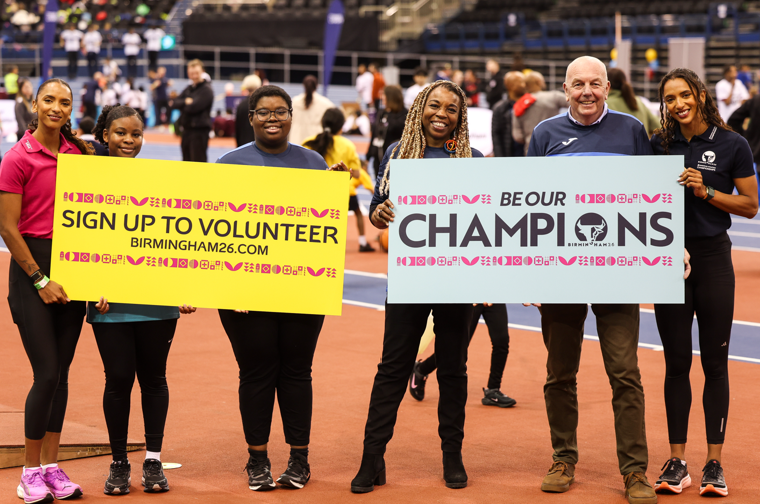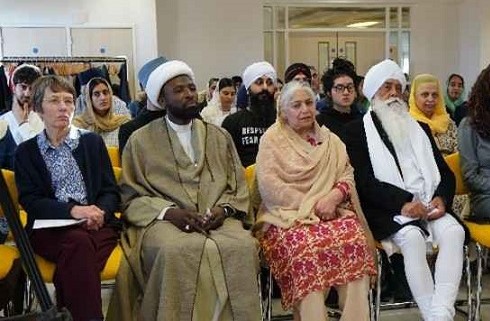Last night Ex-footballer Clarke Carlisle claimed “British stiff upper lip” attitude to mental health and “code of silence” around the issue have finally been broken
As Clarke and his wife, Carrie Carlisle, accepted the Speaking Out Award at the 25th annual Virgin Money Giving Mind Media Awards, which honour the best portrayals of mental health in the media, he said:
“Don’t be shackled, do not be burdened, do not be conditioned by what has gone before. The stiff British upper lip, it’s gone. That code of silence around what you’re thinking and what you’re feeling, it’s gone.”
The couple won the Speaking Out Award at last night’s event hosted by Mind’s President Stephen Fry. The award is given to people who have made a significant impact by sharing their own experiences of mental health problems. The star-studded event took place at the Queen Elizabeth Hall, Southbank Centre, with Fearne Cotton, Frankie Bridge and Nicola Roberts among the celebrity guests celebrating storytelling which helps improve understanding and attitudes towards mental health.
Clarke Carlisle, a former chairman of the Professional Footballers Association, and a player for Burnley, QPR and Leeds, has a history of depression and was reported missing by his family last September, who feared for his life. In a candid interview with Liverpool’s Radio City – which has won the Radio award this year – Clarke spoke about how he had been “strolling around Liverpool looking for a responsible way to die” until a passerby spoke to him and encouraged him to call his wife. Carrie was interviewed alongside him, and was recognised for her bravery in recounting her experience of Clarke’s disappearance and how she helped her husband.
Carrie said:
“People have said to me, how could he put you through that? And my husband said to me he felt like such a burden to me and his family. Let me be clear, my husband didn’t put me through anything. If you’re suffering, you’re not putting anyone through anything. The illness is putting us through something. And the illness is putting you and your family collectively through something.”
Clarke also spoke about his hopes for their children: “They’re not going to have an upbringing like we had. They’re going to be encouraged to be emotionally literate, emotionally resilient – they’re going to be taught that every emotion is bone fide and welcome in our house.”
This year’s entries were among the most diverse yet, covering issues from the struggle to get a diagnosis for depersonalisation disorder to living with hearing voices.
The Making A Difference Award – which recognises media that sets the agenda and initiates change - was awarded to Hollyoaks for their #Don’tFilterFeelings campaign on social media, inspired by the show’s mental health storylines such as Alfie Nightingale’s schizoaffective disorder.
In a strong year for the BBC, BBC News at 10 took home the News and Current Affairs Award for their ongoing coverage of issues from the pressure on mental health services to the impact of the Grenfell Tower tragedy. Meanwhile, the One Show won the Entertainment Award for their imaginative approach to tackling issues such as body dysmorphic disorder, and Drama went to BBC Three’s Overshadowed for its adaptation of the award-winning play, portraying the story of Imogene and her relationship with body image and anorexia.
The Documentary award was presented to ‘Girls on the Edge’ aired on BBC 2, which told the story of three teenage girls sectioned under the Mental Health Act. And Podcast - a new Award for this year - went to BBC Newsbeat’s “I hear voices” which highlighted one woman’s story of living with Schizophrenia.
Also in broadcast, this year’s Soaps and Continual Series was scooped by ITV’s Coronation Street for highlighting male mental health and suicide with character Aidan Connor. And in a win for local media, Radio City was awarded Radio for their Mental Health Marathon - 24 hours of non-stop coverage where 73 guests shared their stories.
In print, Hannah Jane Parkinson won Journalist for a single, powerful article ‘It’s Nothing Like a Broken Leg’ which called for greater conversation around mental health to be matched by better services. Publication went to The Doctor, for their Disparity of Esteem series.
Student Journalist was awarded to Goldsmiths masters’ student Hannah Currie for her film piece ‘We Are All Here, The Forest of Black’, which highlighted the men’s mental health crisis in Scotland. This year’s Digital Champion is Charlotte Mullin for ‘Chuck Draws Things’ who details her experiences of living with anxiety and depression through comic-strip pigeons.
For the second year running, Mind teamed up with Loose Women to present the Lighten the Load Hero Award. The award celebrates every day heroes who support people living with mental health problems. This year’s winner is Amy Lawrence, nominated by Chloe Sunnucks for going above and beyond to help her manage her mental health issues in the workplace.
Paul Farmer, Chief Executive of Mind said:
“The best portrayals of mental health in the media not only help to challenge stigma and build awareness, but can have a direct impact on our wellbeing. Following last year’s unprecedented media attention on mental health, our research found a rise in people seeking help and supporting each other. Every journalist, producer and blogger honoured tonight can be proud that they are changing people’s lives and creating a better national conversation about mental health.
“But while the media has helped to expand the conversation, the reality of living with a mental health problem in our society hasn’t improved at the same pace. This year, nine in ten people have faced discrimination because of their mental health and only a quarter of people have received help from health services. We hope the media can continue to highlight the systemic problems and injustices people with mental health problems face so many more can get the support they need.”















